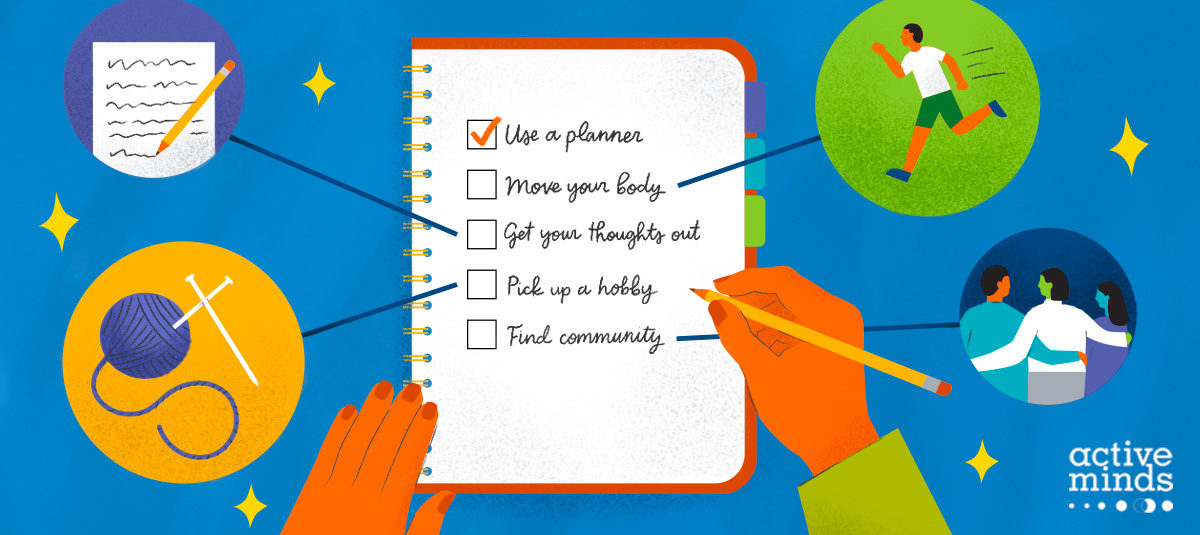Medical school is a very exciting yet challenging time, with each year revealing different challenges. For example, first-year students often struggle with coping with work demands and adjusting to study habits. Second-year students find themselves stressing about the first part of the national board exam and juggling classes and clinic rotations. Third-year students are faced with the challenge of integrating coursework into real-world clinical settings and applying for externships for the following year. Lastly, fourth-year students are focused on monthly internship adjustments, the second part of the national boards exam, and interviews/residency applications. Preventing burnout becomes more crucial than ever, but as a medical student, it can often be difficult to find ways to protect your mental health while meeting extremely high expectations.
The epidemic of burnout can have serious consequences, even apart from suffering mental health – for example, student and physician burnout can affect patient care, which can have severe impacts. For now, further research is needed to understand the underlying and root cause of physician burnout to create societal change. However, even though structures can’t change overnight, there are small steps that we can take as individuals to cope.
A popular saying states, “You can’t pour from an empty cup”, which means that to effectively take care of others, we must take care of ourselves so that we can perform to our fullest each day. When it comes to preventing burnout as a medical student down the line, it’s important to have coping skills or strategies in hand so you are prepared. Here are my top tips and coping skills for managing stress during medical school (although these can also be applied to undergrad, or other graduate programs!):
- Use a Planner: A planner is one of the most helpful tools to stay organized during medical school. I personally have a digital and physical planner. I use my digital planner for long-term planning and a physical planner for short-term and weekly planning. I use a bullet journal because it allows me to be creative while at the same time being productive. There are many systems and ways you can be organized; it all depends on your preference.
- Move Your Body: Exercise has many benefits from overall physical health and mental health, improves productivity, and many others. This is a way of releasing stress and endorphins will make you feel better. Especially when going through a stressful time or even feeling burnt out; exercising can help you feel rejuvenated.
- Get Your Thoughts Out: Journaling is a habit of keeping a log of our experiences or insights that life brings. I journal every day just to check in with myself on a mental, emotional, and physical level. I focused on one aspect that I want to write about. I reflect on my day, set goals for the next day or week, resolve any issues facing me, and do gratitude journaling.
- Pick Up A Hobby: Engaging in hobbies during medical school is a great way to destress from studying. This gives your mind a break from school to focus on hobbies you are passionate about. In fact, taking breaks will increase productivity by feeling more recharged and help you focus better.
- Find Community: I used to study by myself, but now I see the significance of collaborative study sessions with my peers. After all, medicine is collaborative by integrating opinions from multiple fields; it is crucial to share ideas with classmates to enrich your knowledge base. Studying in groups can also help to make sure you are being held accountable for taking breaks, nourishing your body, and staying connected to other people on campus.
As we all head back to campus following winter break, I hope these tips for preventing burnout prove helpful. Being a medical student is a rollercoaster – it has its ups and downs, just like life. However, it’s still important to enjoy the process because medical school is just part of your life, and it will go by fast. This is the time to learn and grow and most of all it’s okay to make mistakes, that’s how you learn.




